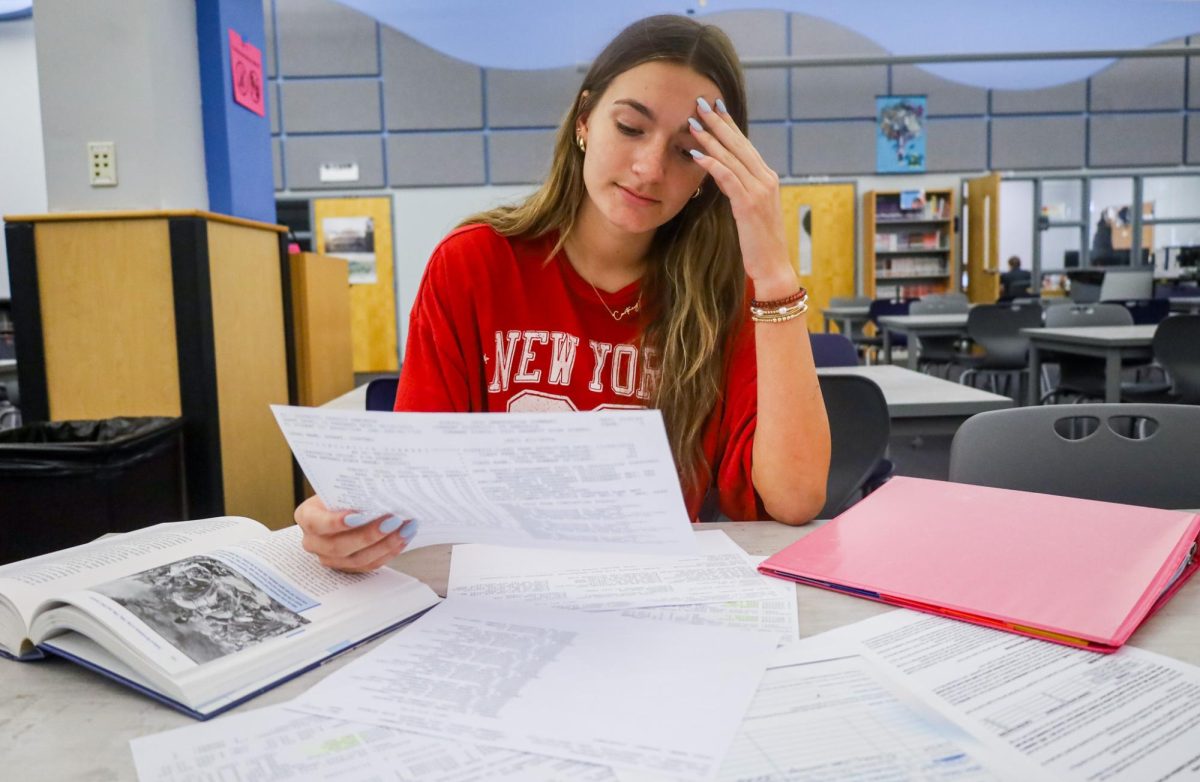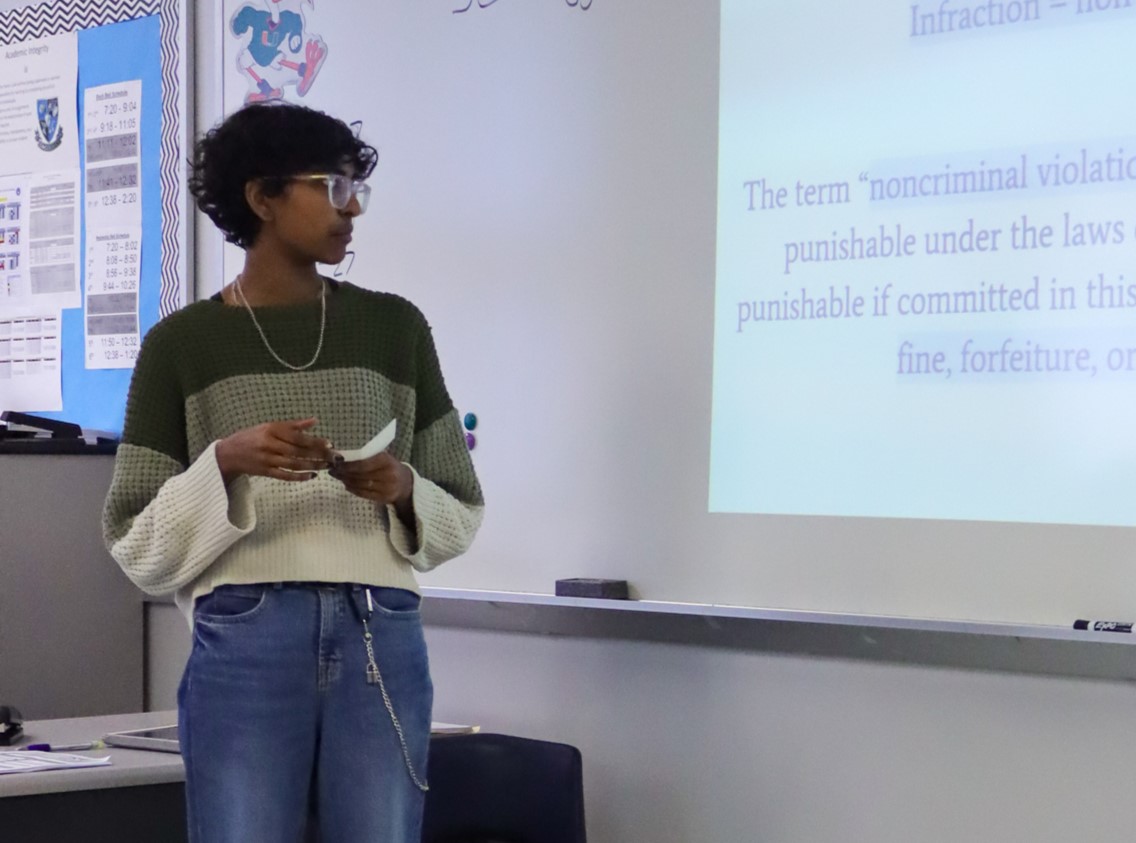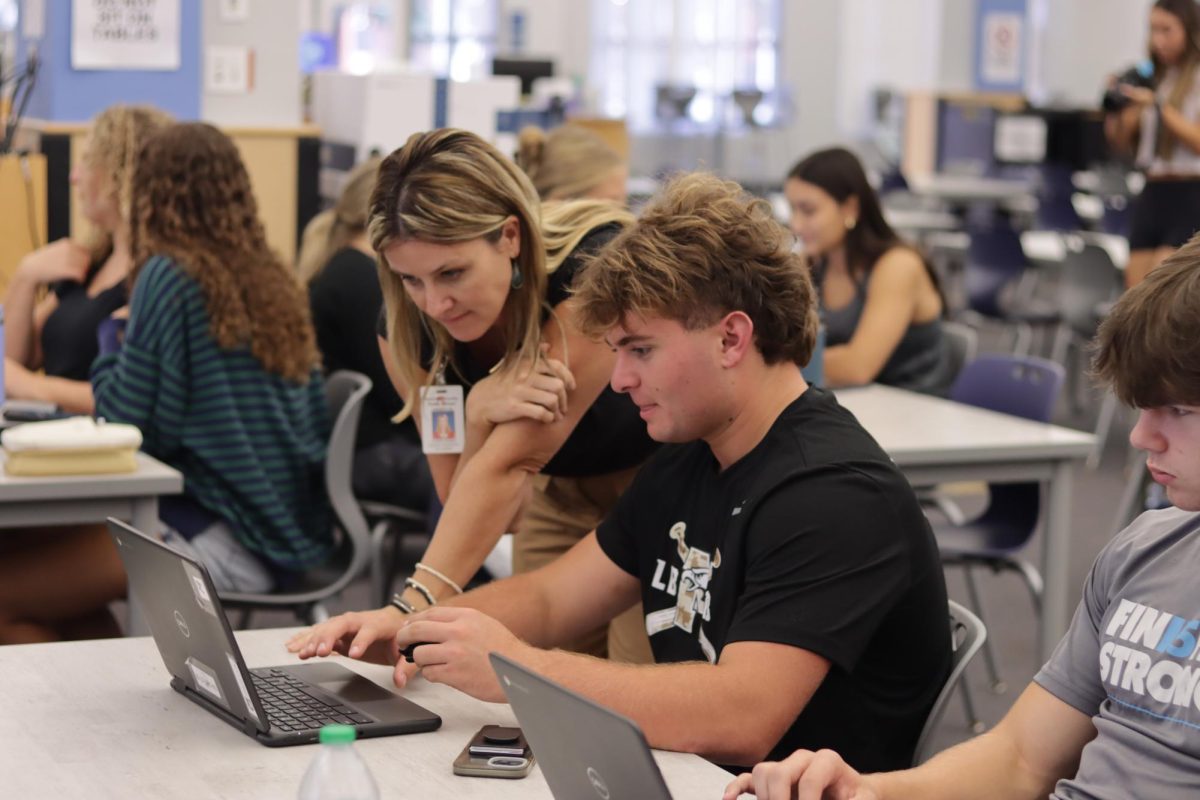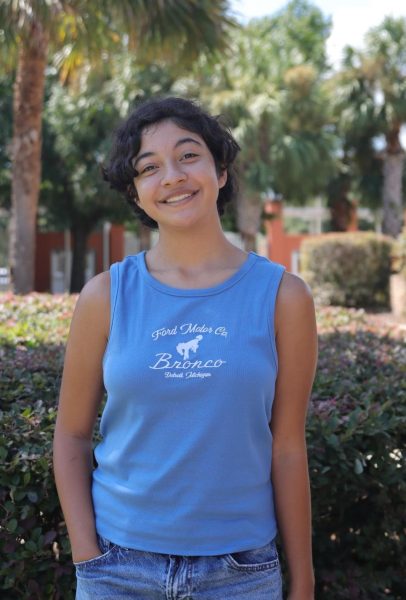Test scores, extracurriculars, college essays, letters of recommendation, FAFSA forms…applying to college is one of the most intense processes high school students will go through.
Every year, seniors spend so much time worrying about their futures that the present can feel like less of a priority. Florida colleges have been increasing their requirements for GPAs and SAT scores. Although within these past years, the standards have increased rapidly.
Senior Courteney Dusart has noticed an increase in competitiveness. Currently, she is taking four Advanced Placement courses and two dual enrollment courses in the hopes of getting into either Florida State University or University of Florida.
“[I took these courses] just to give myself some rigor and challenge myself,” Dusart said. “I want to have a high GPA.”
Dusart has been struggling to keep up with the college application process.
“[It has been] pretty stressful because I feel like I have so much going on right now with college applications, homework, [my] job and extracurriculars,” Dusart said. “I’m so picky on my essays and everything, so it’s all just very stressful to get it to the point I would want it to be at.”
Currently, the University of Central Florida 2024 freshman undergraduate admissions have an average of a 4.22 GPA and 1342 out of 1600 SAT score. As a comparison, 10 years ago, the average for 2014–2015 UCF SAT scores was 1187, with a critical reading score of 591, a math score of 596 and a writing score of 564, and an average GPA of 3.86.
This is also the case for FSU. In the freshman undergraduate admissions for 2014-2015, the 75th percentile had an average of 1280 on the SAT. The average GPA was 3.92. The data for the admitted freshman for 2025 now averages at an SAT score of 1340, and a GPA of 4.2.
English teacher Virginia Bogert has firsthand experience in seeing the increasing standards of colleges, having gone through the process with her children. Bogert’s oldest child, Payton Bogert, graduated high school in 2018. She got into UF with an unweighted GPA of 3.98. Her younger siblings, Madison and Ethan, were not accepted into UF.
“My oldest daughter did a little more in terms of leadership stuff than my younger two,” Bogert said. “But in terms of classes, my older daughter and my younger kids had very comparable classes.”
More recently, 2025 graduate Kat Arnott got into UCF only after being deferred. She was put on hold to be officially accepted because UCF needed more information on the progression of her grades and extracurriculars.
“I think being in band, theater and chorus at the same time might’ve influenced their decision to accept me,” Arnott said.
Arnott had a GPA of 3.6, and an SAT score of 1230. She is currently pursuing a major in Forensic Science.
“People I know who are still in high school have begun to worry about college in junior or even sophomore year,” Arnott said. “I only started to worry when it was time to take my SAT and ACT.”
Arnott also observed the increase in college competitiveness when she and her peers were applying to college.
“I know people with almost perfect grades and extracurriculars who didn’t make it into places like UF, which they would’ve a few years prior,” Arnott said.
This increase in standards did not happen randomly. One of the reasons for the increase in competitiveness is due to the students themselves becoming more competitive, and applying to more in-state colleges for their cheap tuition and convenience.
Erin Verity is the director of first year admissions at FSU.
“FSU’s applicant pool has increased significantly, and as a result the academic profile of admitted students has increased,” Verity said.
Students, even underclassmen, have been increasing their course rigor and extracurriculars to fit within the benchmark range of standards.
Sophomore Alex Quiroz is currently taking three APs: AP World History, AP Pre-Calculus, and AP Chemistry. He aims to get into an Ivy League school, preferably Harvard or MIT.
“In AP Pre-Calc, it is very competitive in there,” Quiroz said. “[The students] tend to aim for the A, although only, I think, three people I know have one.”
Quiroz currently has an 87 average in his AP Pre-Calculus class, and is taking the class to strengthen his transcript.
Students now have been utilizing their school’s resources, one of the biggest being their AP classes. Taking AP classes helps to boost students’ GPA, improve their course rigor for colleges and get them college credits to skip introductory classes.
According to the Florida Department of Education’s 2021 cohort data, approximately 34.9% of the class of 2021 took at least one AP exam in high school, up from the 28.6% of the class of 2011. In 2021, 22.5% of the class scored a three or higher, compared with the 17.2% in 2011.
“Students have access to more courses than they did in the past. Almost every year, they add an additional course,” counselor Dr. Andrea Fuhrer said. “The more that they add, the more that kind of ups the potential for students’ GPAs and access to courses that are competitive.”
With more students taking AP classes, the admissions bar has been set higher, and students are finding it difficult to meet the raised expectations.
“I do think that students place more pressure on themselves to be successful and to take more challenging classes.” Algebra II and AP Pre-Calculus teacher Gian Tucciarone said. “[These are] generally AP classes that they think [are] going to one, help their GPA, but then two, make them stand out on a college application.”
The college admissions process will always be a bit of a mystery for students, and there is no guarantee a student will get into a college they want to get into, even if they hit or surpass the benchmark expectations that the colleges have set in place. However, some things will always be true no matter the school.
“Academics are still our number one priority,” Verity said. “Don’t focus on things like extracurriculars at the expense of your academic performance.”
Tucciarone has seen students worry about their college applications. He shares advice with his students on his experiences in the college application process, and how he handled it.
“The biggest thing is that you can’t stress yourself out. You just have to do what you can do,” Tucciarone said, “Put your effort into being successful and not trying to meet some arbitrary standard that you think is in your head.”















